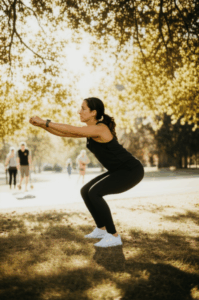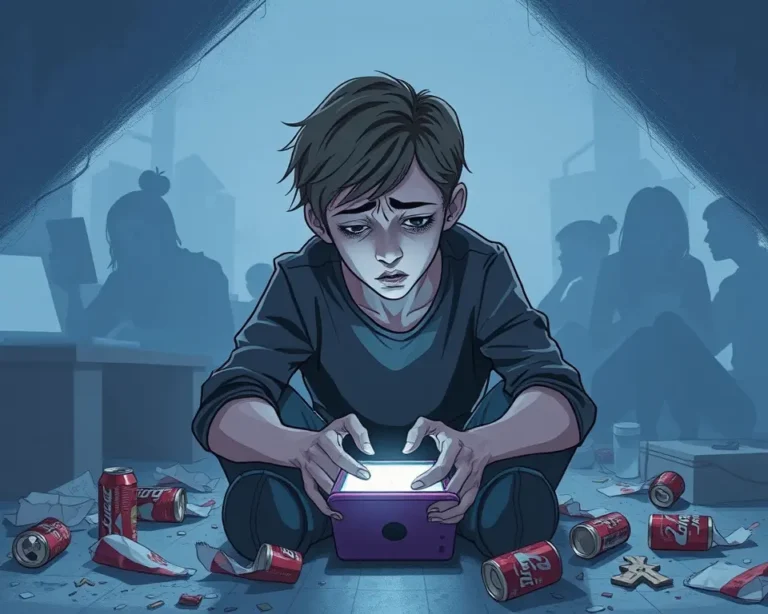A concerning trend has emerged, linking the surge in adolescent mental health problems to increased screen time and decreased physical activity. Recent studies underscore the importance of balancing digital habits with regular exercise to safeguard the psychological well-being of young people.
The Digital Dilemma: How Screens Impact Teen Minds
The pervasive nature of smartphones, tablets, and social media has dramatically altered how teenagers spend their time. While technology offers numerous benefits, excessive screen time can have detrimental effects on mental health.
Increased Risk of Anxiety and Depression
Research consistently reveals a strong correlation between high screen time and increased symptoms of anxiety and depression in adolescents. A study published in JAMA Pediatrics found that adolescents who spent more than three hours a day on screens exhibited higher levels of anxiety and depression. Similarly, a study of American teens aged 12-15 revealed that those using social media for over three hours daily faced twice the risk of negative mental health outcomes.
Social Media’s Double-Edged Sword
Social media, while offering connection, can also fuel feelings of loneliness, inadequacy, and poor body image. A survey by the Royal Society for Public Health indicated that platforms like Snapchat, Facebook, Twitter, and Instagram led to increased feelings of depression, anxiety, poor body image, and loneliness among young users. The constant exposure to curated online personas can create unrealistic expectations and contribute to low self-esteem.
Disrupted Sleep Patterns
The blue light emitted from screens can interfere with the production of melatonin, a hormone that regulates sleep. Insufficient sleep can lead to increased irritability, decreased ability to cope with stress, and a greater risk of mental health problems.
Sedentary Lifestyle
Spending excessive time in front of screens often leads to a sedentary lifestyle, reducing opportunities for physical activity and social interaction. This lack of physical activity can further exacerbate mental health issues.
The Exercise Elixir: Boosting Mental Wellness Through Physical Activity
Physical activity is a powerful tool for promoting adolescent mental health. Regular exercise offers a multitude of benefits, including stress reduction, mood enhancement, and improved self-esteem.
Endorphin Release and Mood Enhancement
Exercise triggers the release of endorphins, natural mood boosters that can alleviate symptoms of anxiety and depression. These chemicals interact with receptors in the brain, reducing the perception of pain and triggering a positive feeling in the body.
Stress Reduction
Physical activity helps lower the body’s production of stress hormones and improves the ability to cope with challenging situations. Exercise can be a healthy outlet for pent-up emotions and can promote relaxation.
Improved Self-Esteem and Cognitive Function
Regular exercise can enhance self-esteem, body image, and cognitive function. Studies have shown that physically active adolescents demonstrate improved memory, attention, and problem-solving skills.
Social Benefits
Team sports and group exercise activities offer opportunities for social interaction and a sense of community, which are crucial for adolescent development. These activities can improve social skills and enhance a sense of belonging.
Finding the Right Balance: Strategies for Reducing Screen Time and Increasing Exercise
Addressing the concerning trend of declining adolescent mental health requires a multi-faceted approach involving individuals, families, schools, and communities.
Setting Healthy Screen Time Limits
Establishing clear screen time limits is essential for promoting healthy digital habits. The American Academy of Pediatrics recommends no more than two hours of screen time per day for children and teenagers. Parents can utilize built-in device settings or apps to monitor and limit screen usage.
Encouraging Alternative Activities
Encourage teens to engage in activities that support healthy development, such as:
- Physical activity: Sports, dancing, hiking, biking, or simply taking a walk with friends.
- Creative pursuits: Painting, writing, playing a musical instrument.
- Social interaction: Spending time with friends and family in person.
- Hobbies: Reading, gardening, collecting.
Modeling Healthy Habits
Parents and caregivers should model healthy screen use habits and prioritize physical activity in their own lives. Leading by example can significantly influence a teen’s behavior.
Making Exercise Fun and Accessible
Help teens find physical activities they enjoy and that fit their interests. This could involve trying new sports, exploring nature trails, or dancing to music. Integrating physical activity into daily routines, such as walking or biking to school, can also help teens stay active without feeling burdened.
School-Based Interventions
Schools can play a crucial role in promoting physical activity by establishing regular physical education classes, enriching after-school programs, and creating safe routes for walking and biking to school.
Family Involvement
Plan active family outings, such as hiking, biking, or swimming. Schedule evening walks as a family or work out together at home. Make physical activity a family priority.
The Long-Term Impact
Establishing healthy screen time habits and promoting regular physical activity during adolescence can have lasting benefits for mental and physical well-being. By prioritizing these lifestyle factors, we can empower young people to thrive and build a healthier, more resilient future.







